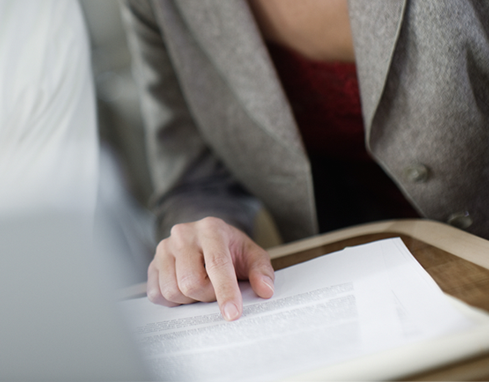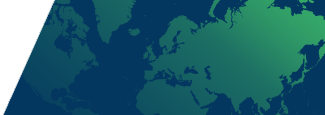

Chad
Synthesis
major macro economic indicators
| 2020 | 2021 | 2022 | 2023 (e) | 2024 (f) | |
|---|---|---|---|---|---|
| GDP growth (%) | -2.1 | -1.1 | 2.5 | 3.5 | 3.5 |
| Inflation (yearly average, %) | 4.5 | -0.8 | 5.3 | 3.4 | 3.0 |
| Budget balance (% GDP) | 2.1 | -1.6 | 5.1 | 7.0 | 4.0 |
| Current account balance (% GDP) | -7.3 | -4.5 | 2.8 | -1.4 | -1.9 |
| Public debt (% GDP) | 54.1 | 55.9 | 50.4 | 43.7 | 40.1 |
(e): Estimate (f): Forecast *Including grants
STRENGTHS
- Potential gains in agricultural productivity and arable land in reserve
- Oil sector generates foreign currency and tax revenue
- First country to reach a debt restructuring agreement within the common G20 framework
WEAKNESSES
- Widespread extreme poverty (38.7% of the population in 2022)
- Widespread food insecurity (12.1% by the end of 2022) linked to low-productivity subsistence farming
- Budgetary dependence on oil revenues
- Landlocked and disaster-prone: the level of Lake Chad, once the main source of water for irrigation, has stabilised but is now only 10% the size it was in the 1960s; floods, etc.
- Lack of control by the authorities over large parts of the country, which encourages informality, trafficking in gold, arms and people, tax evasion and the absence of public services.
- Political fragility: weak legitimacy of leaders, fighting against armed rebel or jihadist groups
- Geographical and community proximity to Sudan, which has been in the throes of internal armed conflict since April 2023, and to Libya, which is coping with major political instability and security problems
RISK ASSESSMENT
Rebound dependent on oil prices
After years of negative growth (with some exceptions) for a population with a very low standard of living, the revival of the oil sector should continue to sustain the welcome recovery in 2023. This upturn is subject to many downside risks: continued food inflation and political instability, a prolonged interruption of IMF assistance (notified in June 2022) and threats to agricultural production (38.5% of GDP in 2019).
These risks also largely guide the decisions of foreign investors focused on the extraction of black gold. After Exxon's withdrawal took effect at the end of 2021, British buyer Savannah Energy announced in May 2022 an agreement on solar power plants with a combined capacity of 500 MW for its own installations and to supply cities. In June 2022, Glencore succeeded in selling its rights to the mature oilfield specialist Perenco. Despite high crude oil prices, the high extraction costs and the above-mentioned risks prompt oil companies to limit themselves to operating wells. Apart from oil assets (70% of exports in 2019), the disputed gold in the rebel-held Tibesti region (20%) and the robust cotton-grain sector (5%), the landlocked country relies heavily on imported manufactured goods. Nevertheless, the food bill remains low (~15% of imports) in view of the requirements of an acute humanitarian crisis, with the state relying on international aid.
In 2023, private consumption will continue to suffer from the effects of the poor 2021-2022 harvest, while the soaring cost of fertilisers and international quotations stop price easing. Subsistence agriculture, which supports 90% of the population, will struggle to increase productivity as supply chain insecurity hinders the creation of modern supply chains. Due to low redistribution of the rent and poor public services linked to insecurity and the limited state presence, the relative decorrelation between the health of the oil industry and living standards should continue to be a fact. Infrastructure spending will remain the margin of adjustment for a budget burdened by security spending and held back by the uncertainty surrounding international financing. In the face of the socio-political crisis, the government should increase social spending, particularly to control inflation.
More sustainable debt due to high oil prices
The improvement in the public balance resulting from the surge in oil prices has led creditors to advance their positions on Chad's debt. An agreement was reportedly reached in November 2022 with Glencore, the Swiss giant that heads a syndicate that has lent US$1 billion to Chad (one-third of the external debt, which itself represents 25% of GDP). In contrast, the Paris Club, together with China and India, rejected debt restructuring in October 2022, keeping the door open in case of a crisis. Consequently, the extended credit facility concluded with the IMF in December 2021 remains on hold pending confirmation of the country's repayments. Libya (7% of external debt) has reportedly agreed on a new payment schedule. In response to the food crisis, the World Bank agreed to a grant of US$105 million in June 2022.
Along with brighter public finances, the improvement in the balance of goods swung the current account into positive territory in 2022. The recovery was achieved thanks to the deferred collection of 2021 oil revenues, the resumption of production and high barrel prices, all of which offset the rise in the import bill and extractive equipment. However, the services deficit is expected to increase in 2023 to meet the needs of the majors, which could lead to a decline in the current account balance. The primary income deficit is likely to persist as its level depends on profits repatriated abroad and ultimately on global energy demand, with Coface forecasting oil prices to remain around $95-100 per barrel in H1 2023.
A pivotal nation in the Sahel on the defensive in the face of internal faction fighting
Following the death in office (“in combat”) of President Idriss Déby in April 2021, his son Mahamat Déby took control of the government amid challenges to his legitimacy and the state's inability to carry out its missions for the population. In September 2022, the “transitional” president was given broad executive powers by a meeting of co-opted parties such as incoming Prime Minister Saleh Kebzabo. The transition could thus last up to two more years, with the possibility for the current president to run for office despite his commitments to the international community. Faced with an active civil opposition and rebel groups, the government has not lowered its guard, carrying out a violent repression of demonstrations in the autumn. In a continuum of grievances addressed to the government, the south and centre of the country, which are the country’s most densely populated regions, are prey to destructive floods as is the case each rainy season (June-October). Faced with soaring grain prices, the government declared a food emergency in June 2022 to attract international aid. In recent years, the drought- and flood-ridden shores of Lake Chad have been the target of attacks by Boko Haram jihadists, justifying the redeployment of troops to the interior that were previously deployed elsewhere in the Sahel.
Disorganisation caused by Mali's departure from the G5 Sahel, as well as the interregnum since Mahamat Déby's “constitutional coup d’état”, is the cause of the downturn in military action in the country. Paris provides unmitigated support to this pillar of the G5 Sahel (an alliance of states to combat terrorism in the Sahel), which has effective intelligence and hosts a French air base. The Gulf States are playing an increasingly role with the Chadian authorities, becoming involved in national dialogue relocated to Qatar and through the Paris Club. Furthermore, China has a special place as Chad’s leading economic partner (accounting for around 40% of imports in 2021), and through the Chinese oil company CNPC, the country's largest operator.
Last updated: September 2023


